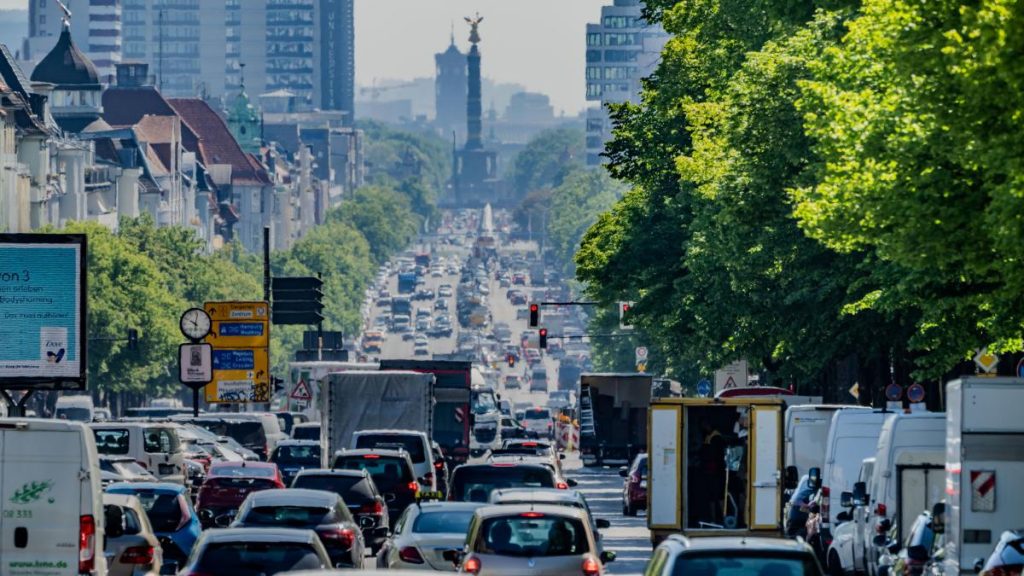A new study by the eco-lobbying organization Agora Verkehrswende predicts that the longer the government delays implementing measures for a climate-neutral transportation sector, the more expensive the transition will be. The study suggests that political hesitation comes with a price, either in terms of money or greenhouse gas emissions. To achieve the goal of net-zero greenhouse gas emissions by 2045, the government must act soon to save money and reduce risks associated with delays.
The study examined three scenarios with varying degrees of climate protection measures in the transportation sector. The reference scenario, based on current transportation policies including planned but not yet approved measures, would see greenhouse gas emissions decrease to 111 million tons by 2030 and to around 15 million tons by 2045. This scenario would miss both the 2030 climate goal and the net-zero emissions goal for 2045. However, more ambitious scenarios, called “Wende 2025” and “Wende 2030,” could achieve climate neutrality in transportation by 2045, but at a higher cost due to the need for increased efforts to meet the targets.
The study focuses solely on the transportation sector and does not consider CO2 savings in other sectors. The German government recently agreed that emissions reduction goals should be achieved across sectors rather than each sector having its own targets, which would be more efficient. Agora Verkehrswende estimates that if no changes are made in the transportation sector, the government would have to spend around 9.7 trillion euros by 2045, including indirect costs for climate damages due to continued CO2 emissions. This projection is highly speculative and ignores global climate protection developments, implying that the German transportation sector alone determines the extent of climate change.
The Agora Verkehrswende study highlights the importance of timely and ambitious climate policies in the transportation sector to achieve net-zero emissions by 2045. Delaying action would result in higher costs and risks associated with climate change. The study suggests that implementing more effective climate protection measures in the near future could actually save the government money compared to maintaining the status quo. It is crucial for policymakers to prioritize sustainable transportation policies to meet climate goals and reduce the environmental impact of transportation.
In response to the study, the German government may need to reassess its current transportation policies and consider more ambitious climate protection measures to achieve net-zero emissions by 2045. By investing in sustainable transportation solutions and reducing greenhouse gas emissions, Germany can lead the way in combating climate change and promoting a cleaner, more environmentally friendly transportation sector. Policymakers must act decisively to address the challenges posed by climate change and ensure a sustainable future for generations to come.
Overall, the study by Agora Verkehrswende underscores the urgency of taking immediate and effective action to transition to a climate-neutral transportation sector in Germany. By implementing ambitious climate policies and investing in sustainable transportation solutions, the government can create a cleaner and more environmentally friendly transportation system while saving money and reducing the risks associated with climate change. It is essential for policymakers to prioritize climate protection measures in the transportation sector to achieve net-zero emissions by 2045 and contribute to global efforts to combat climate change.


